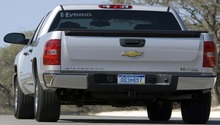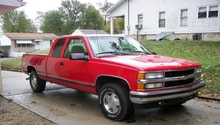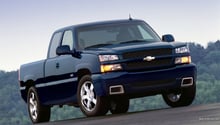Chevrolet Silverado 1999-2006: Diesel vs. Gas
Are you doing long haul towing, such as moving horses across state or towing that big boat out to the coast for a weekend of fishing? On the other hand, you may just be moving loads across town or hauling your family to the nearest park. There are significant differences between the two trucks, such as fuel efficiency, performance and maintenance needs. Read on and you'll get a good overview of their differences.
This article applies to the Chevy Siverado (1999-2006).
Gas and diesel engines are both internal combustion engines. The major difference is that in a gas engine the fuel and air is mixed then compressed by the piston and ignited by a spark plug. In the diesel engine, the air is compressed first and then the fuel is added. Ignition occurs due to the air being heated by compression. Both have their advantages and disadvantages. This article will look at the differences in cost, fuel efficiency, maintenance and performance.
Price
Initially the gas truck will be the least expensive of the two trucks by about $10,000-$12000, depending on which model you purchase. For example a 4-wheel drive king cab will cost significantly more. Even a used diesel will be still be more expensive than its gas counter part, especially at higher mileages. This is because a diesel truck, which has greater longevity than a gas truck, holds its resale value higher. Though initially more expensive, that could work for you if and when you decide to sell it.
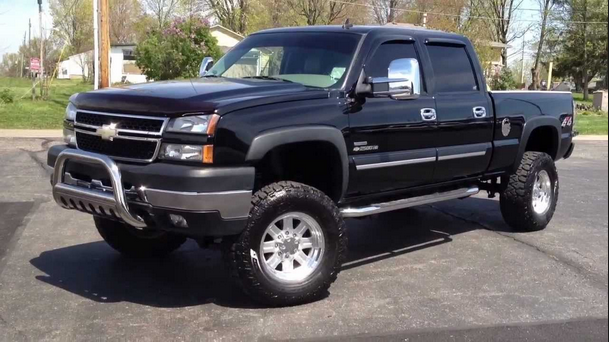
Miles Per Gallon
On average, a diesel engine will go 20% to 30% further on a gallon of fuel than a gas engine. But diesel is approximately 20 cents more per gallon, depending upon where in the United States you are located. In some markets it is as low as only a penny more per gallon. So where you live may have a bearing on the overall cost of fuel in the long run. The 2006 Chevy Silverado Duramax diesel will get almost 14 mpg in the city while a similarly equipped gas engine Silverado will get 10 mpg. This is just one deciding factor. It will be a while before the additional cost of a diesel is offset by gas savings. But you'll also want to factor in maintenance costs for both. We'll get to that shortly.
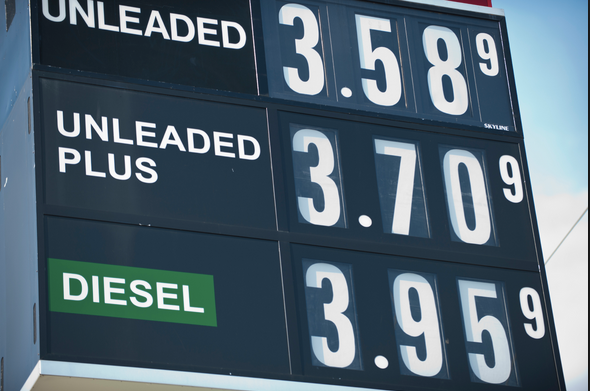
Towing Ability
Hands down, the diesel truck will out tow a gas truck. This is because the diesel provides a substantially greater amount of torque. Torque is a measure of how much a force acting on an object causes that object to rotate. That means getting more power to the wheels, which is especially critical when pulling heavy loads up an incline. On average, the diesel will have around 200 more foot-pounds of torque than the gas engine. This translates into a diesel truck being able to pull approximately up to eight tons while a gas engine will only pull five tons.
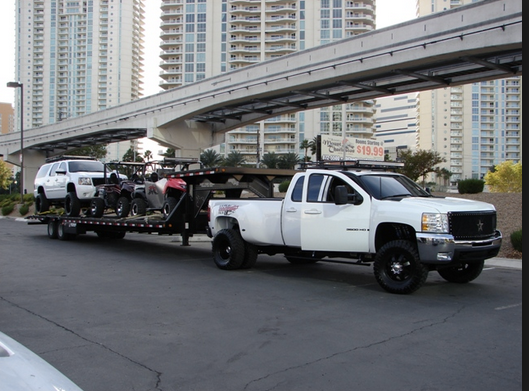
Scheduled Maintenance
As far as maintenance goes, the diesel will be slightly more expensive in the long run. This is mainly due to the fact that diesel engines run dirtier than gas engines, so it will need oil changes and air filters more often; you'll also have to replace its glow plugs every few years. However, diesel engines are built heavier than gas engines in order to sustain the increased stresses of higher compression rates. And as diesel engines don't have an ignition system, they will not have to have the regular tune ups that gas engines require, like replacing spark plugs, ignition modules, coils, etc. So, in the long run, a diesel may be less costly to operate.
Reliability
A diesel engine will be more reliable as it does not need a high voltage ignition system; so, a diesel engine will never fail due to lack of spark, a major cause of failure in a gas engine. A diesel engine also runs cooler, putting less stress on the engine's cooling system, making overheating much less likely. The diesel engine is also built much stronger so engine wear is greatly decreased.
Common Questions
Which is the truck for you? Well this depends on your budget and for what the truck will be used. Towing huge loads through the mountains? Your choice best choice is probably the diesel. Just moving light loads across town or around the farm? Then the gas truck would probably best serve your needs. Another deciding factor is the availability of fuel in your area. Diesel fuel can be a little harder to find, whereas gas is much more abundant. If resale is a strong consideration, then the diesel should be your choice.
Related Discussion and Sites
- Diesel vs. Gas - Chevroletforum.com
- Diesel vs. Gas - Fueleconomy.gov
- Diesel vs. Gas reliability - Autorepair.about.com

